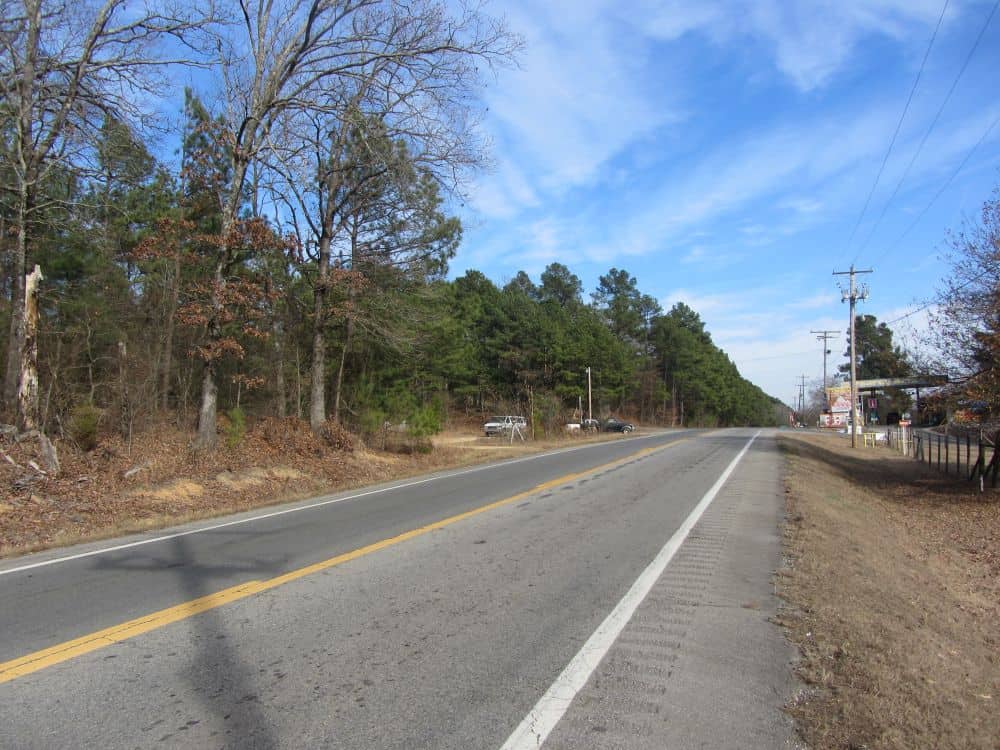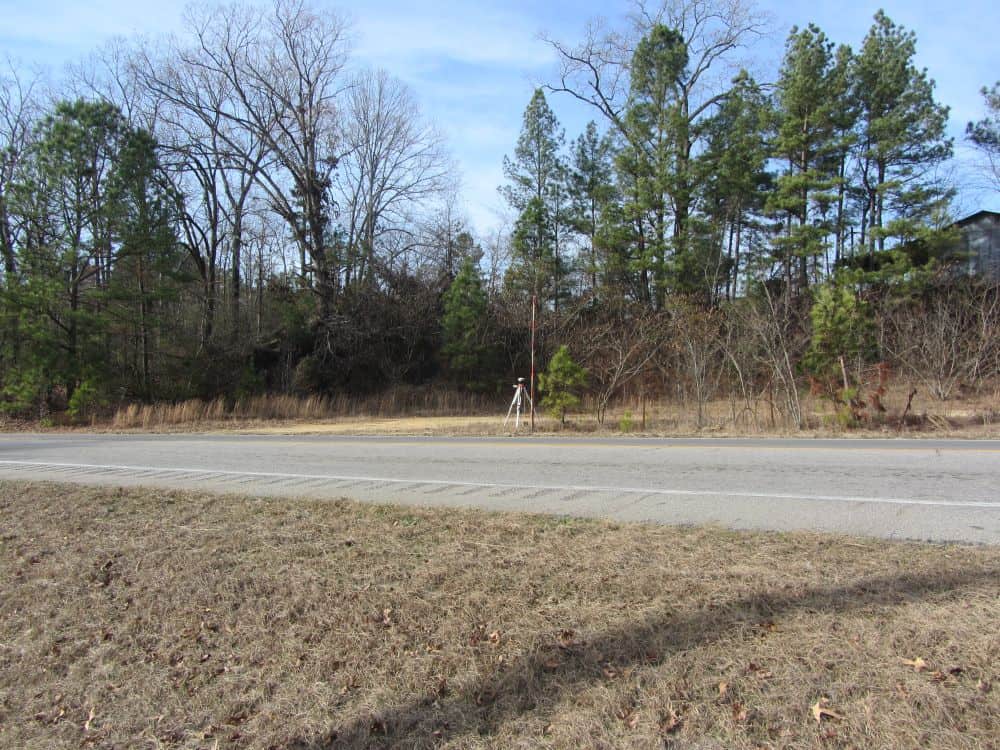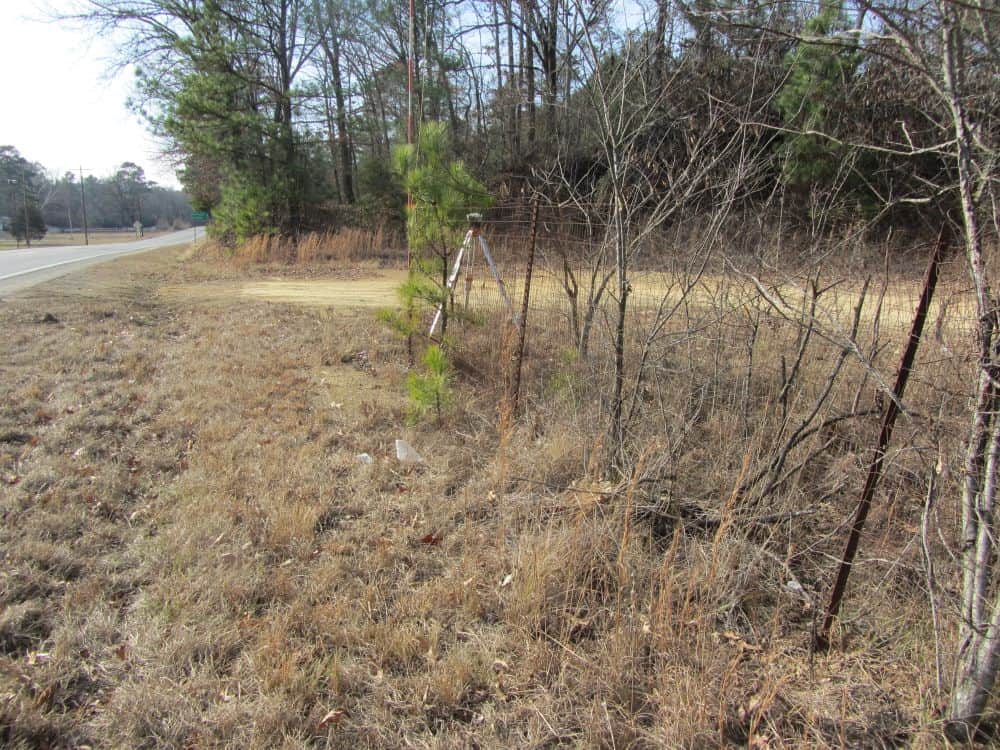Nate,
Their may be some expansion due to heat, but we have NOT noticed anything significant. We have RTK checks for every day the contractor uses this base, also we perform long static checks. This even survived SuperStorm Sandy. The ladder did NOT survive. They have since installed a stair well, much easier to walk up.
Why stairs.?
With a loooong 12v cable that thing could be transmitting 24/7.
Nate,
Initially, I thought your question was regarding the proximity of the unit to the road, where some clown might easily avail himself of it. Did the crew ever leave the base out of sight for any duration? Was the unit, or units, secured in any way?
I estimate the mask on that side of the road to be about 30 degrees. Seems like an inadvisable location for a YELLOW machine to me.
My LS would have chewed that project out, no problemo.;)
JA, PLS SoCal
If I recalled it right,
6.45e-6 x 30 ft x 120 deg F = 0.023 ft or 7 mm
vertical movement over a rather large temperature swing.
Differential heating by sun on one side might make a difference horizontally.
Bill93, post: 405508, member: 87 wrote: If I recalled it right,
6.45e-6 x 30 ft x 120 deg F = 0.023 ft or 7 mm
vertical movement over a rather large temperature swing.Differential heating by sun on one side might make a difference horizontally.
This not Texas. We don't see 120å¡F in New York.
That would equally apply to a range of -30 to +90 or whatever.
Nate The Surveyor, post: 405381, member: 291 wrote:



This was one I found today. I wonder what others think. Would you select this base site?
Why, or why not?
Thanks
Nate
Not unless I left someone sitting next to it. I also don't like all the tall trees close by. Spend a little time to find the right spot, off the beaten path.
Bill93, post: 405511, member: 87 wrote: That would equally apply to a range of -30 to +90 or whatever.
In NYC union guys don't work below 0å¡F, so that range would be 0å¡ to 90å¡.
0.02ft is within our tolerance for dirt work. But next time I'll suggest we measure it at 45å¡F (which I think was just about that temp in April when we measured the 1st time) then we can split the R.C.H.
Yeah. That 0.02 is extreme spread. Pretty much disappears (vertically) in the noise of RTK. I'd be a little curious about warping horizontally if one side is in the direct sun, but given most of the base setups I've seen from contractors, this is a real improvement. I'd use it without much hesitation, especially with a checkpoint as Lee describes.
Yeah, for a CORS sta, I would want to insulate, or otherwise stabilize the temperature, I think. For most our work, it would not be important.
But, stability is good...
.... and those surveyors, who set up their bases like that, are voters too 😉
Fog didnt help us much that morning but it burned off quick. Highest point on the interstate!
Regarding the I-beam:
We have pretty high temperature differentials here and you can actually track metal pipes moving west in the morning as the east sides heats up, then moving east in the afternoon as the west side heats up. But...I have found that if you put a piece of white irrigation pipe over the metal pipe, the temperature inside the plastic pipe is fairly uniform east to west during the day.
I have a customer with a base in Wyoming that we fixed this way. Later we filled the plastic pipe with concrete too. Has appeared to be really stable since. Before enhancements we saw 1 cm movements.
MARK! That's what I was looking for. Thank ye very much!!!
That fits in my brain, it is logical, and makes sense.
That will fix my problem.
Nate
.jpg)



